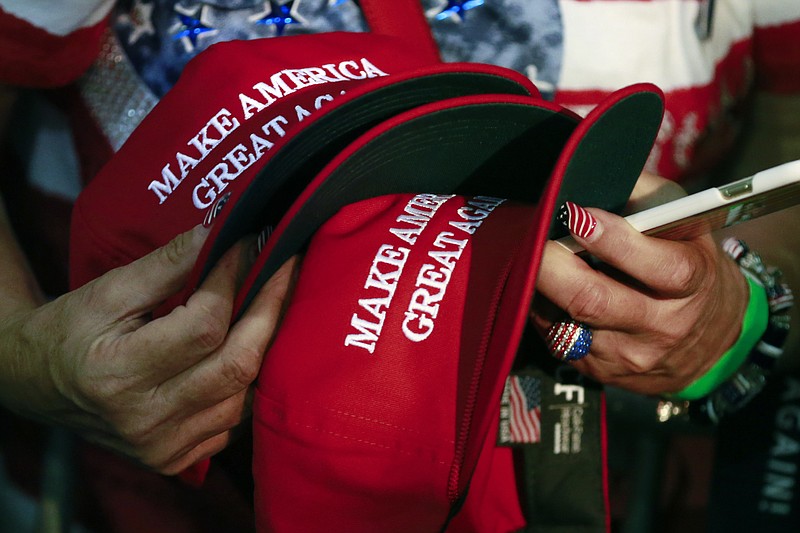In the normal telling, history is driven by visionaries and revolutionaries. If you studied history in school you probably plowed through book after book about this revolution or that one - the American Revolution or the French, the industrial revolution or the information one. In the normal telling of the past, events are driven by revolutionaries, and the few reactionaries who stand in the way get run over.
But really, history is often a volley between revolutionaries (who take control in some periods) and reactionaries (who drive events in others). Today, as the Columbia political theorist Mark Lilla points out in his new book, "The Shipwrecked Mind: On Political Reaction," reactionaries are in the saddle.
Reactionaries, whether angry white Trumpians, European nationalists, radical Islamists or left-wing anti-globalists, are loud, self-confident and on the march.
Reactionaries come in different stripes but share a similar mentality: There was once a golden age, when people knew their place and lived in harmony. But then that golden age was betrayed by the elites. "The betrayal of elites is the linchpin of every reactionary story," Lilla writes.
Only the reactionaries have the wisdom to turn things back to the way they used to be, to "Make America Great Again."
"Reactionaries are not conservatives," Lilla continues. "They are, in their way, just as radical as revolutionaries and just as firmly in the grip of historical imaginings."
Reactionaries are marked by a militant, apocalyptic mindset, a crisis mentality. They are willing to take extreme, violent action to turn back the clock. In their narcissism, they think they alone understand the crisis and are in a position to reverse the trends.
It's understandable that we would be living in a reactionary moment. The periods after financial crises are always bumpy politically. Whether it was the 1890s, the 1930s or today, such periods often thrust up ugly, backward-looking ideologies.
Eras after mass immigration tend to be bumpy, too. There tends to be a repulse against the sudden influx of new people. Moreover, for many groups, especially the less educated working class, life genuinely is worse than it was in the mid-60s. It's no wonder such people buy Donald Trump's paradise-lost narrative.
The more serious problem is today's pervasive and self-reinforcing pessimism, which feeds the reactionary impulse.
The belief systems that used to reinforce a faith in progress have become less influential. Gloom has pervaded that national mind. It doesn't matter how much living standards rise or the poverty rate falls, it makes you seem smart to be alarmed and hypercritical.
The paranoid style of conspiracy-mongering has become the lingua franca of the internet. Public conversation is dominated by people's ahistorical insistence that this country is sliding toward decline.
The best weapon against the reactionary is not bubbly, blind optimism. It is, frankly, temperamental conservatism. It is the belief that, thanks to the general spread of market freedom and cultural pluralism, our society is becoming stumblingly but gradually richer, more just and more creative. But economic and technological dynamism needs to be balanced by cultural cohesion.
It's stupid and impossible to turn back the clock. But history is a repository of wise cultures.
The conservative looks fondly to the past not as a paradise to return to but as a treasure trove of experience to borrow from. The conservative seeks to revive, restore and reconstruct - to use the gifts of the dead to make the present a little sweeter and deeper. Many of history's most inspiring leaps forward (the Renaissance) came from a blending of past cultural and spiritual wisdom with present technological advance.
The global pluralistic marketplace is a permanently revolutionary force. If you don't balance it with the communal, humanistic and spiritual countercultures from the past then the people, naked, will try to reject it altogether. They'll succumb to the angry extremism of reaction and discard progress whole cloth.
That impulse is on the march just now.
The New York Times
